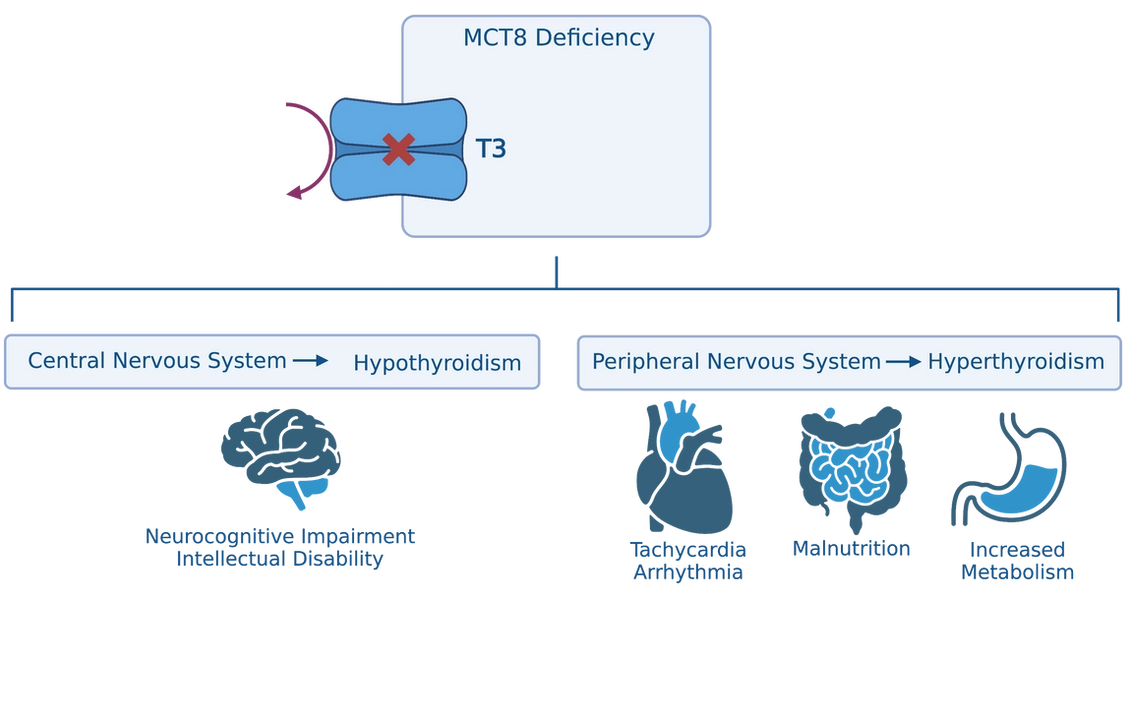About
Allan-Herndon-Dudley syndrome (AHDS), also known as MCT8 Deficiency, is a rare genetic disorder that affects a child’s cognition, mobility, and overall health.
In individuals with AHDS, thyroid hormone is unable to enter cells in the brain while excess thyroid hormone remains in the tissues throughout the rest of the body. This is due to a defect in the thyroid hormone transporter that is regulated by the MCT8 gene. As a result, patients experience hypothyroidism (too little thyroid hormones) in the brain while experiencing hyperthyroidism in the rest of their body, leading to severe developmental delay, decreased muscle tone, restless sleep, increased heart rate, and failure to thrive.
AHDS is an X-linked genetic disorder with a 50% chance that male babies will have the disorder if their mother is a carrier of the abnormal gene that codes for the MCT8 thyroid hormone transporter protein. Although not well described, female carriers of the MCT8 gene may also have symptoms. The disorder may also develop spontaneously during fetal development, where the baby is the first person in the family to have AHDS.
